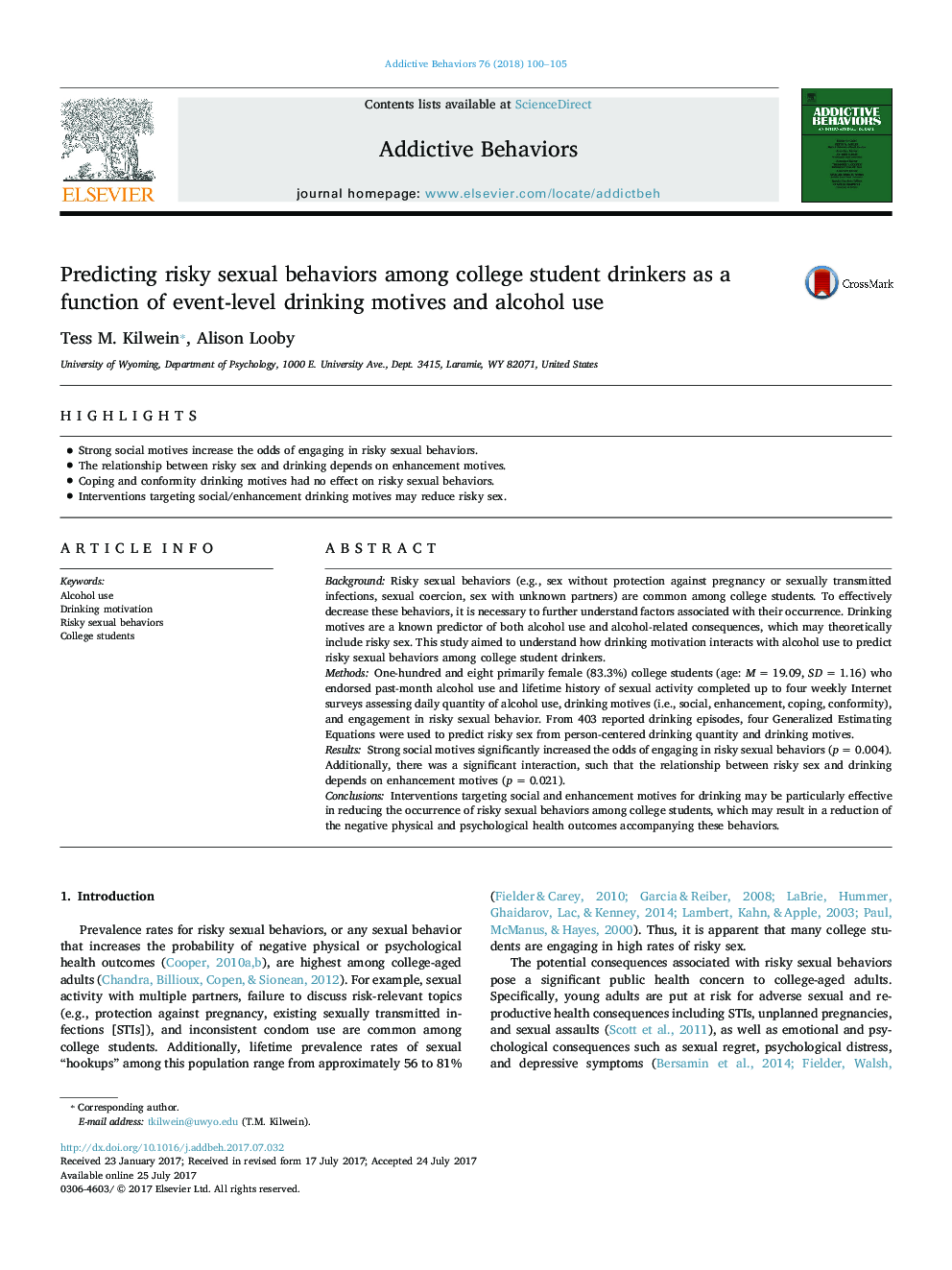| کد مقاله | کد نشریه | سال انتشار | مقاله انگلیسی | نسخه تمام متن |
|---|---|---|---|---|
| 5037614 | 1472495 | 2018 | 6 صفحه PDF | دانلود رایگان |
- Strong social motives increase the odds of engaging in risky sexual behaviors.
- The relationship between risky sex and drinking depends on enhancement motives.
- Coping and conformity drinking motives had no effect on risky sexual behaviors.
- Interventions targeting social/enhancement drinking motives may reduce risky sex.
BackgroundRisky sexual behaviors (e.g., sex without protection against pregnancy or sexually transmitted infections, sexual coercion, sex with unknown partners) are common among college students. To effectively decrease these behaviors, it is necessary to further understand factors associated with their occurrence. Drinking motives are a known predictor of both alcohol use and alcohol-related consequences, which may theoretically include risky sex. This study aimed to understand how drinking motivation interacts with alcohol use to predict risky sexual behaviors among college student drinkers.MethodsOne-hundred and eight primarily female (83.3%) college students (age: M = 19.09, SD = 1.16) who endorsed past-month alcohol use and lifetime history of sexual activity completed up to four weekly Internet surveys assessing daily quantity of alcohol use, drinking motives (i.e., social, enhancement, coping, conformity), and engagement in risky sexual behavior. From 403 reported drinking episodes, four Generalized Estimating Equations were used to predict risky sex from person-centered drinking quantity and drinking motives.ResultsStrong social motives significantly increased the odds of engaging in risky sexual behaviors (p = 0.004). Additionally, there was a significant interaction, such that the relationship between risky sex and drinking depends on enhancement motives (p = 0.021).ConclusionsInterventions targeting social and enhancement motives for drinking may be particularly effective in reducing the occurrence of risky sexual behaviors among college students, which may result in a reduction of the negative physical and psychological health outcomes accompanying these behaviors.
Journal: Addictive Behaviors - Volume 76, January 2018, Pages 100-105
